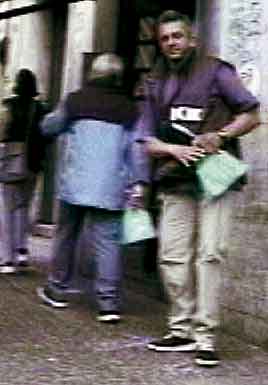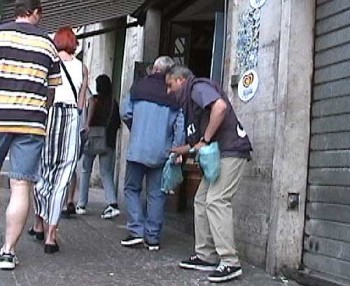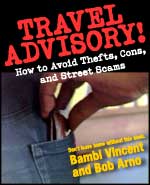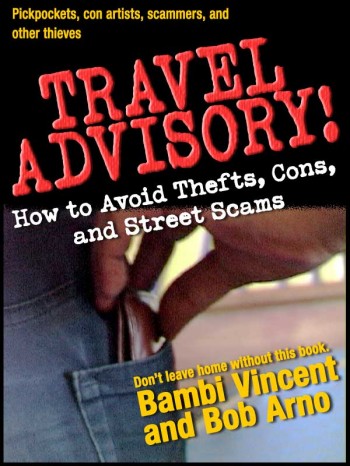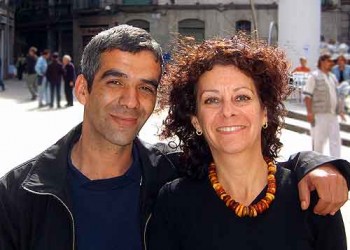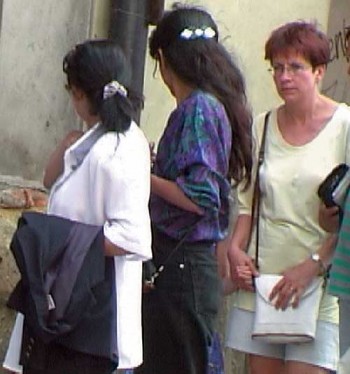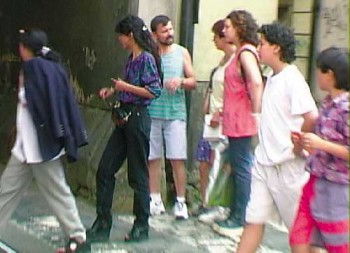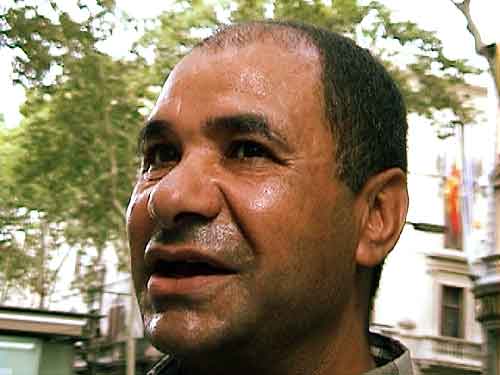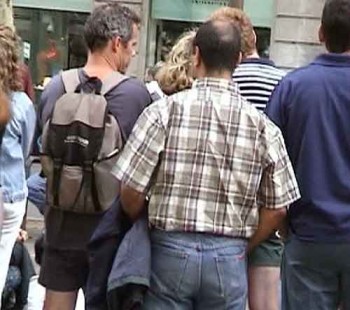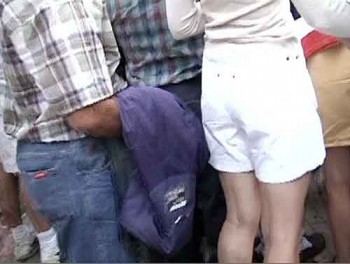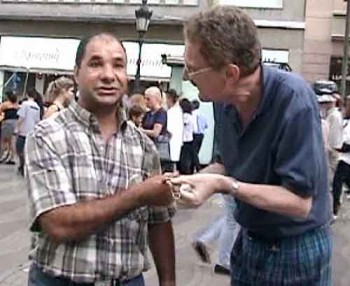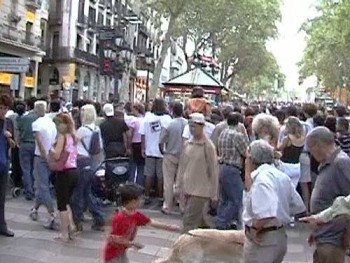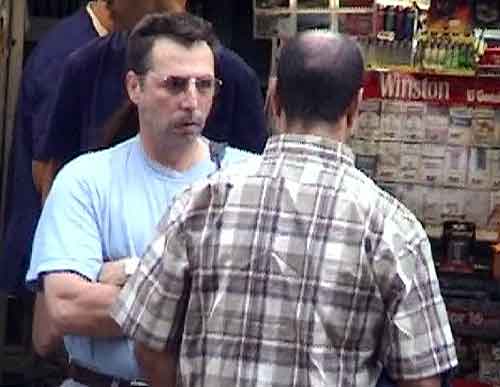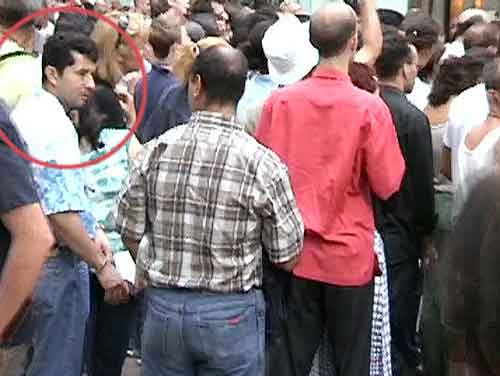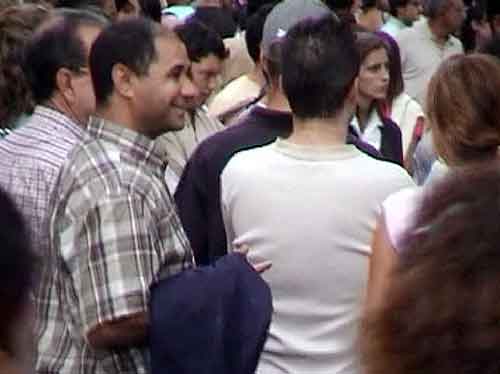
Souvenir Sucker
Our friend Russell, a magician, works a considerable amount of time each year in Asia. A streetwise New Yorker, he knows pretty much all the tricks played from the East Coast to the Far East.
Russell was in Bali recently, between jobs. He was on a bus crowded with tourists when traffic ground to a halt. The morning was sweltering. Windows were open. Occasional clouds of dust wafted in, more welcome than rain, which would force the closing of windows and bring the interior humidity to Beverly Hills spa levels.
As traffic slowed, then stopped, a raging hoard of pleading faces surrounded the bus. Vendors reached up to the open windows offering their wares. Wood carvings, silver jewelry, and stamped batik sarongs danced in the windows like props in a puppet show. Vendors had only desperate moments to tempt these tourists before they and their dollars vanished down the road.
Always a sucker for souvenirs, Russell scrutinized the merchants, looking for something new. He was not disappointed. He noticed an intricately carved something glowing in the sunlight as its hawker flourished it. The expert salesman caught Russell’s interest and pushed his way near. He proffered his wares for inspection. It was a hollow piece of bone—cow or sheep, Russell guessed—carved with delicate figures in classic Indonesian poses. So thin, it was, the light shone through the bone in warm amber tones.
“Twenty dollar,” the vendor said, scratching a long dark scar on his neck.
“I’ll give you five,” said Russell.
“Ten.”
“Okay, ten.” Russell reached for his wallet and took out an American ten while the vendor wrapped the bone and passed it through the window.
The bus began to move and the vendors scattered reluctantly, some trotting alongside the bus for another hopeful moment. Soon the bus picked up speed and the locals were left in the dust.
Pleased with his find, Russell unrolled his carving from its plastic bag. He stared at it.
It had looked so much finer a moment ago. Now, the blocky figures hacked into the bone felt sharp against his fingers. The delicate details were gone. He held it up to the light. No glow.

Cheated!, Russell thought. They got me, a world-wise New Yorker. He rewrapped his booby prize and looked out at the passing lime-green terraced rice fields, the tall spirit houses, and offerings to the gods placed in the roadside gutters with care.
We ran into Russell in Bali as someone else might bump into a coworker at the grocery store. Together, we strolled along the waterfront of Cape Sari and through an open-air market. Fat pigs and goats lay suckling their broods beside stacks of bamboo furniture, while chickens stood waiting for sale, one to a bell-shaped woven basket. Souvenir t-shirts hung limply above varnished seashells and carved Buddha heads. Postcards outnumbered food items. Just a few years before, we remembered, only eggs and cloth were sold here. As we browsed and wandered, Russell told us about his morning rip-off and, laughing, promised to show us his white elephant.
“Shit! There’s the guy!” Russell pointed and, there, unbelievably, was the man with the scar on his neck, offering the same beautiful piece of carved bone. The three of us watched with fascination as the man made a sale, as he pulled a plastic bag out of his cloth satchel and adroitly swapped artifacts.
It was the classic bait-and-switch, expertly performed. Russell grinned, not at all displeased at having been duped this way.
“He’s a magician!” he said. “Did you see how he used misdirection? Fucking great!”
For a highly skilled young street performer, Russell has been known to toss ten bucks into a hat, and that’s all he’d paid this con man earlier. But he wasn’t quite satisfied.
He strode up to the shyster who, of course, didn’t recognize him at all.
“How much?” Russell asked, and the two repeated their earlier negotiations. Bob and I watched from a distance.
“You don’t have to wrap it,” Russell said, when they’d agreed on a price.
The vendor’s face fell. “Yes, must wrap!”
“No. Besides, I want this one.” Russell held onto the fine sample.
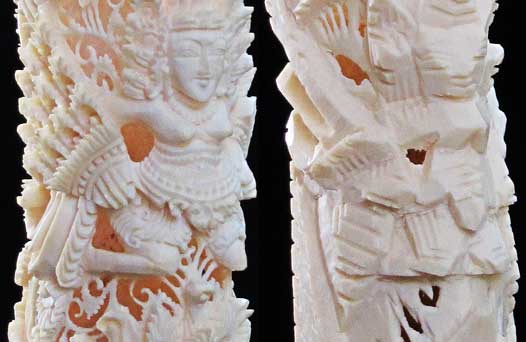
“And the guy started to panic,” Russell told us later, with absolute glee. “And behind me, another vendor, a woman, began to laugh and point at us. You could tell she was happy to see this guy getting caught.” Russell was laughing so hard he could hardly talk. Now he flourished the fine bone carving as the vendor had, triumphant. The sun was low and glowed through the delicate design of the salesman’s floor sample.
“I’m gonna put them side by side on a shelf,” he told us, “one beautiful, one crude, and a story to go with them.”
[This Bait-and-Switch series started here. More in the next post.]
Excerpt from Travel Advisory: How to Avoid Thefts, Cons, and Street Scams
Chapter Eight: Con Artists and Their Games of No Chance



